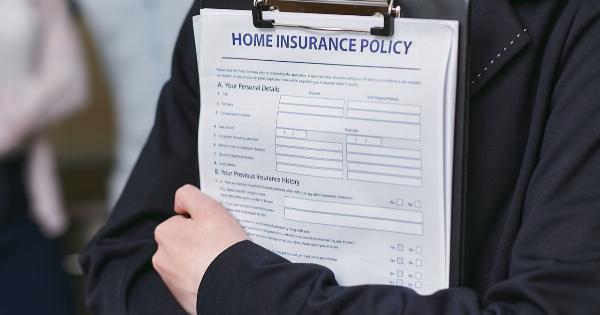Insurance is a necessary expense for many individuals and businesses. Whether it’s for your car, home, health, or business, having insurance provides a safety net in case of unexpected events.
However, the cost of insurance can be a burden on your finances. If you’re looking to save money on your insurance premiums, there are several strategies you can employ. In this article, we will explore various ways to unlock cheaper insurance rates without compromising on coverage.
1. Shop Around and Compare
One of the most effective ways to find cheaper insurance rates is to do your research and compare quotes from different insurance providers.
Each insurance company has its own underwriting guidelines and pricing algorithms, which means the rates they offer can vary significantly. By obtaining multiple quotes and comparing the coverage and premiums, you can make an informed decision about which provider offers the best value for your money.
2. Bundle Your Policies
Insurance companies often offer discounts to customers who bundle multiple policies together. For example, you can bundle your home and auto insurance policies with the same company to benefit from lower premiums.
Additionally, if you have multiple vehicles or properties, insuring them all with the same provider can lead to substantial savings. This is because insurance companies value loyalty and are more likely to incentivize customers who bring them more business.
3. Increase Your Deductibles
A deductible is the amount you pay out of pocket before your insurance coverage kicks in. By opting for a higher deductible, you can lower your insurance premiums.
However, it’s important to ensure that you have enough savings to cover the deductible in case of a claim. Increasing your deductibles can be a viable option if you have a good track record of safe driving or have a healthy lifestyle, as it reduces the likelihood of filing a claim.
4. Improve Your Credit Score
Your credit score can have a significant impact on your insurance rates. Insurance providers often use credit-based insurance scores to determine the premium you’ll pay.
By improving your credit score, you can be deemed less risky, which can translate into lower insurance rates. Paying your bills on time, reducing your debt, and correcting any errors on your credit report are some effective ways to boost your credit score.
5. Take Advantage of Discounts
Most insurance companies offer various discounts that can help reduce your premiums. These discounts can range from having a clean driving record to being a member of certain professional associations.
Some common discounts include safe driver discounts, multi-policy discounts, military discounts, and good student discounts. Be sure to ask your insurance provider about all the available discounts and take advantage of the ones you qualify for.
6. Consider a Different Payment Plan
Believe it or not, the way you pay for your insurance can affect the total cost. Many insurance companies charge convenience fees for monthly installments.
By opting for an annual or semi-annual payment plan, you can avoid these additional fees and potentially save money in the long run. If paying the full premium upfront is not feasible for you, consider setting aside money in a separate account each month to prepare for the lump-sum payment.
7. Maintain a Good Claims History
Insurance providers reward policyholders who have a clean claims history. The more claims you file, the higher the risk you pose to the insurance company, which can lead to increased premiums.
By practicing caution and taking preventive measures, you can minimize the number of insurance claims you need to file. This includes driving safely, maintaining your property, and taking steps to reduce the risk of accidents, theft, or damage.
8. Update Your Coverage Regularly
As your circumstances change, it’s essential to review your insurance coverage regularly. For example, if you’ve paid off your car loan, you may no longer need comprehensive coverage.
If you’ve made improvements to your home, such as installing a security system, you may qualify for additional discounts. By keeping your insurance provider informed about any changes, you can ensure you’re getting the most accurate coverage at the best rates.
9. Consider Increasing Liability Coverage
To save on premiums, some individuals opt for the minimum required liability coverage. While this may lower your upfront costs, it can be risky if you’re involved in an accident where you’re at fault.
By increasing your liability limits, you provide better financial protection for yourself and others. Surprisingly, increasing your liability coverage often comes at a minimal additional cost. This can provide greater peace of mind and potentially save you from significant expenses in the event of a liability claim.
10. Work with an Independent Insurance Agent
Working with an independent insurance agent can be a valuable resource in finding cheaper insurance rates. These agents have access to multiple insurance companies and can help you navigate the complex insurance landscape.
They can provide personalized advice, shop around for the best rates, and help you understand the trade-offs between coverage and cost. Independent agents work for you, not the insurance company, and aim to find the most cost-effective solutions for your insurance needs.
Unlocking Affordable Protection
While insurance is a necessity, it doesn’t have to break the bank. By implementing these strategies and exploring all the available options, you can unlock cheaper insurance rates without compromising on coverage.
Remember, it’s important to strike the right balance between affordability and adequate protection for your specific needs. Don’t be afraid to ask questions, seek professional advice, and take the necessary steps to ensure you’re getting the best value for your insurance dollars.

























